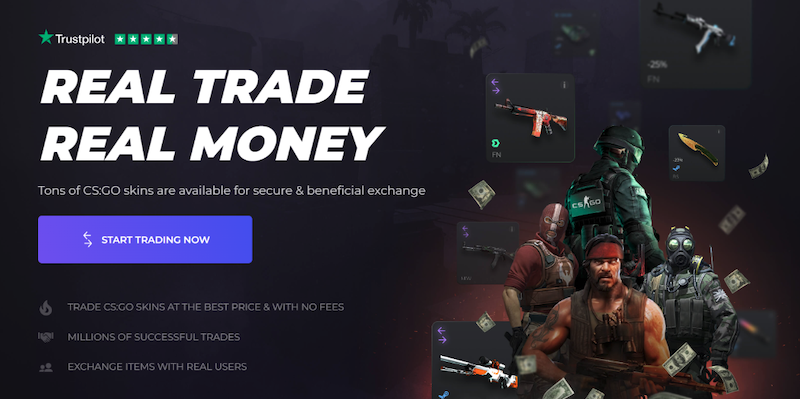Trading Skins in Counter-Strike 2: What will change?
Valve remained conservative and didn’t attempt to innovate when it came to skin trading in CS2, a move which made the process feel pretty traditional.
However, DMarket and other platforms like it have proved invaluable for skin trading since the earlier game (CS:GO).
Evolution of Skin Trading
Counter-Strike has been around for many years and the concept of csgo skin trading is widely known. Trading enables players to exchange skins with other players. The upcoming CS2 will see some changes to the trading process that rectifies issues faced by earlier versions while enhancing the experience.
CS2 incorporates a revamped version that provides features like streamlined processes and several security measures, demonstrating the aim to offer safe and efficient services to its users engaging in skin trades. Thoroughly checked, it aims at reducing risks associated with cyber fraud or theft during transactions. But nothing will change drastically.
Improved Security Measures
Counter-Strike 2 has announced a series of enhanced security measures in response to concerns about scams, fraud and unauthorized transactions that could endanger players.

They are designed to ensure that the Counter-Strike 2 trading system is more secure than ever before, with features such as stronger authentication protocols, trade confirmation mechanisms, and safeguards against fraudulent activities built directly into the platform.
These will allow players to experience a safe trade without getting scammed by others, and will undoubtedly provide peace of mind for everyone who invests their time and money in playing this exciting game.
DMarket Regulations and Fees
With the introduction of CS2, DMarket implemented certain regulations and fees to maintain a fair and balanced trading environment, as always. These regulations may include restrictions on trading frequency, value, and fees for transactions conducted through the marketplace. The fees charged will contribute to the game’s economy and support ongoing development and maintenance.
Impact on the Player Community
The changes in skin trading within Counter-Strike 2 will have various impacts on the player community. Here are a few notable considerations:
- Accessibility: the centralized marketplace will provide players with easier access to a wider range of skins, promoting diversity and allowing players to explore different customization options.
- Security: the enhanced security measures aim to minimize the risk of scams and unauthorized transactions, fostering a safer trading environment and building trust among players.
- Trading culture: the changes in skin trading mechanics may influence the trading culture within the player community. Players may adapt their strategies, preferences, and behaviors based on the new system’s features and limitations.
Improved Security Measures
Counter-Strike 2 has introduced no significant changes to skin trading in comparison to CS:GO. Its focus is on improved security measures, a centralized marketplace, and more regulations to create a safer and more streamlined trading experience.
These changes aim to enhance accessibility, security, and the overall trading environment within the game. As players adapt to the new mechanics, it will be interesting to observe the long-term impacts on the player community and the evolving dynamics of the skin economy within CS2.

